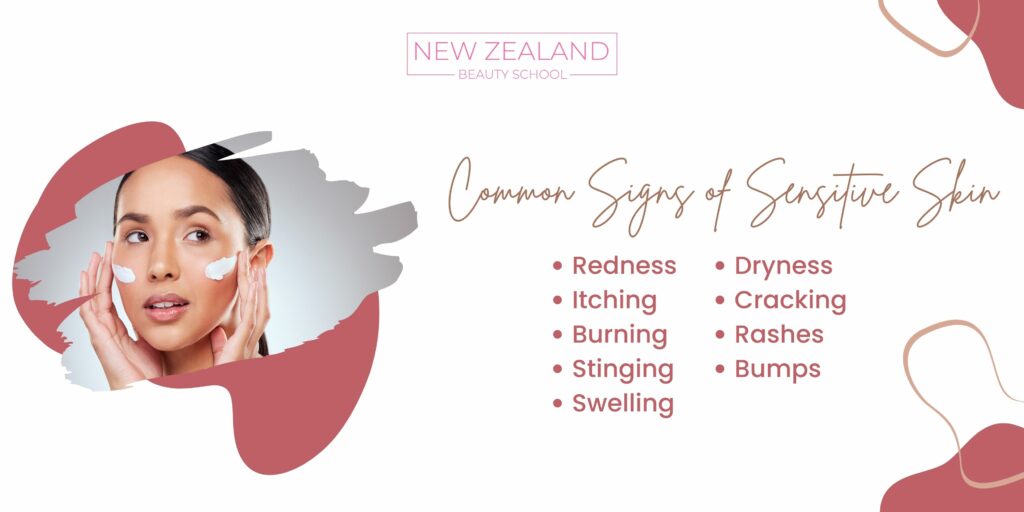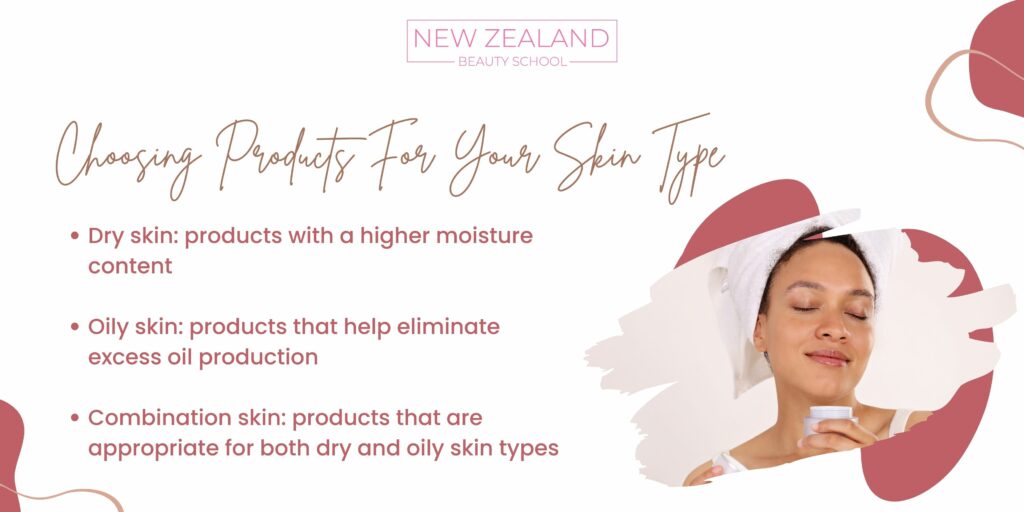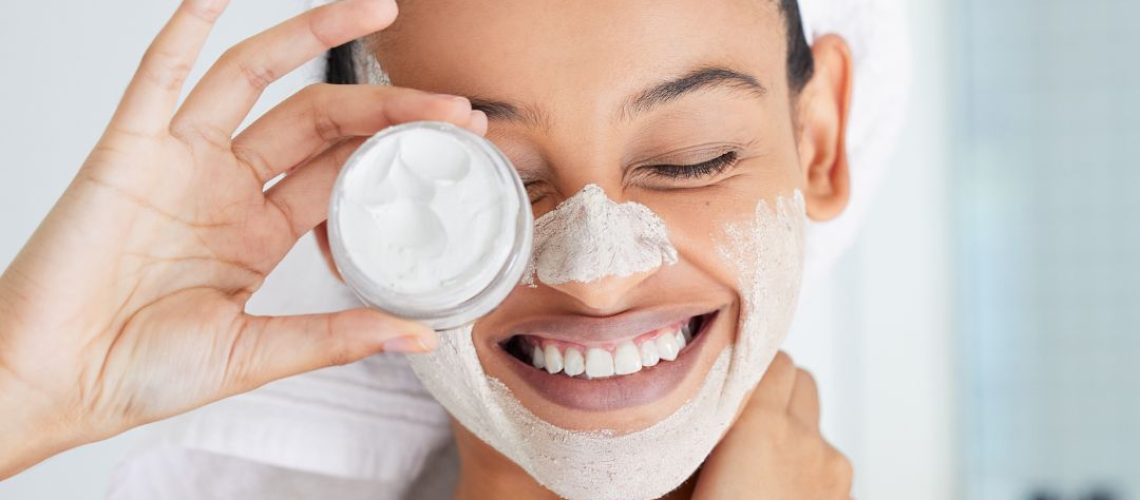Skin is nature’s body armour, protecting us from the outside elements and shielding our bones and internal systems from harm. It is a pretty amazing thing – it can keep us warm or cool, tells us if we are allergic to something, it can heal itself, and, best of all, each person’s skin is completely unique. It comes in every beautiful shade, sometimes being decorated with freckles and moles and swirls that emulate that of the constellations in the night sky.
With all this in mind, it stands to reason that our skin might sometimes need a little extra TLC or might have sensitivities to certain products or materials.
So, how do you choose the right products for sensitive skin?
What is sensitive skin?
To begin, sensitive skin is often categorised as skin that reacts negatively to certain stimulants, such as product ingredients and materials, frequently causing the skin to become irritated in some way.
Redness, itching, burning, stinging, swelling, dryness and cracking, rashes and bumps, when exposed to certain things, are all signs that your skin might be more sensitive or that you may have allergies to certain ingredients. Always seek medical attention should these symptoms worsen or affect your breathing and physical health.
Our skin can be naturally sensitive or can become more sensitive later in life should the skin become damaged or injured.

Getting to know your skin
Whilst skin can generally be placed into certain categories as a starting point, it is important to note that no two people will have exactly the same skin. Everyone has their own uniquely divine dermatology and will vary depending on factors such as heritage, exposure to the elements, diet, pre-existing conditions, hormones and so on.
Our skin also changes throughout our lifetime; some skin types are more prone to acne and breakouts, redness, pigmentation changes, an altering of elasticity, as well as sun damage.
There has been a considerable amount of toxic language surrounding skin for many years, with the use of words such as ‘imperfections’ being thrown around and a surfacing of the notion that skin is only beautiful when it is ‘clear’.
Well, we say this is nonsense!
Everyone’s skin is entirely unique to them; shade, texture, sensitivity, and so naturally healthy, nourished skin will LOOK different on everyone.
Our skin can sometimes be a source of great frustration, but if we try and remember that it is doing its best to protect us, and we make the effort to show it some love, we will never steer too far wrong.
Choosing products for sensitive skin
When it comes to choosing products for sensitive skin, you first need to understand that skin can often be categorised into three main sectors: dry, oily, or combination.
The clues are in the name:
- dry skin is prone to needing products with a higher moisture content
- oily skin types will perhaps need products that help to eliminate excess oil production
- combination skin types can suffer from both issues at different points
Different things can trigger our skin to flare up or become even more sensitive; hormonal changes, stress or lifestyle and habit changes can all have an effect on our skin. And so finding the right products to care for our skin at its best and worst is super important.
It may also be worth considering visiting a dermatologist or makeup specialist to get a clear picture of how your skin works and what it needs. If you have particularly sensitive or easily irritated skin or believe you may have certain allergies, it is vital to see a specialist and get further advice before trying out too many lotions and potions.

Caring for your sensitive skin
Finding the best skin care product for your sensitive skin can feel like an uphill battle. Many sensitive skin care products claim to have universal use, forgetting that not everyone is made the same and, therefore will react differently.
Face products for sensitive skin can be particularly tricky to find, as our facial skin is naturally more delicate and prone to breakouts and irritation.
We have done some digging and come up with a few tips to look for and avoid when selecting facial products for sensitive skin:
- Give it a swerve: avoid perfumes and harsh scents
- Minimal is magnificent: look for products with natural, minimal ingredients and be wary of chemicals and soaps that can do more harm than good to skin with sensitivities. Natural products such as chamomile and aloe vera are extremely gentle and soothing to the skin
- Gently does it: when handling your skin, be sure to use both gentle products and a gentle touch, as vigorous rubbing and scrubbing can irritate the skin further
- Moisturise regularly: to avoid dry and damaged skin, as this can make sensitivities worse.
Want to help people feel confident in the skin they’re in?
Passionate about skincare and well-being? Perhaps a career in skin therapy could be the job for you!
Skin therapists, or estheticians, require a keen eye and extensive dermatological knowledge to help tend to each individual’s skin needs. At times, they may be dealing with very sensitive issues surrounding a client’s skin health and confidence, and so it is vital that therapists maintain a safe and open environment free of judgement, where clients can feel comfortable to share their insecurities and be empowered to make a difference.
Sometimes a client may not know where to start with how to manage and look after their skin type, so it is the job of the skin therapist to offer them this guidance.
The therapist will help the client figure out their skin type and advise them how to best treat and prevent certain dermatological issues, occasionally recommending further medication or specialist treatment.
It is important to look into the different qualifications required for your chosen profession, as some may require a greater depth of training and protocol than others, particularly with clinical skin therapies. Depending on where you plan to practice, there may be different laws and licence requirements for you to carry out your work safely and within legal guidelines.
There are different sectors of the industry to explore, and it is possible to pursue a more clinical approach to skin therapy as opposed to the beauty side.
Pursuing something such as a dermal therapy course or course in dermal science will give you greater knowledge and insight into the more medical side of skin therapy, covering topics such as removal of skin tags, hair, tattoos and leg veins, scarring, wound healing, inflammatory conditions and pre and post-operative skin care.
Here at New Zealand Beauty School, we offer a range of short beauty courses and facial courses to get you started on your journey. A facial skincare course or skin facial courses are an excellent way to equip yourself with a firm foundation of dermatological knowledge to ground you in the business.
And whether you are just starting out or perhaps looking to take a facial refresher course, New Zealand Beauty School is here to guide you on your way to achieving your beauty goals.
Our Certificate in Facials will teach you transferable skills about how to properly care for and nourish skin to a professional spa-ready level. As well as general skincare and maintenance, you will also learn facial massage, a relaxing and stimulating service to take skin well-being to a deeper level for your clients.
Start following your passion today with an online course at New Zealand Beauty School.
